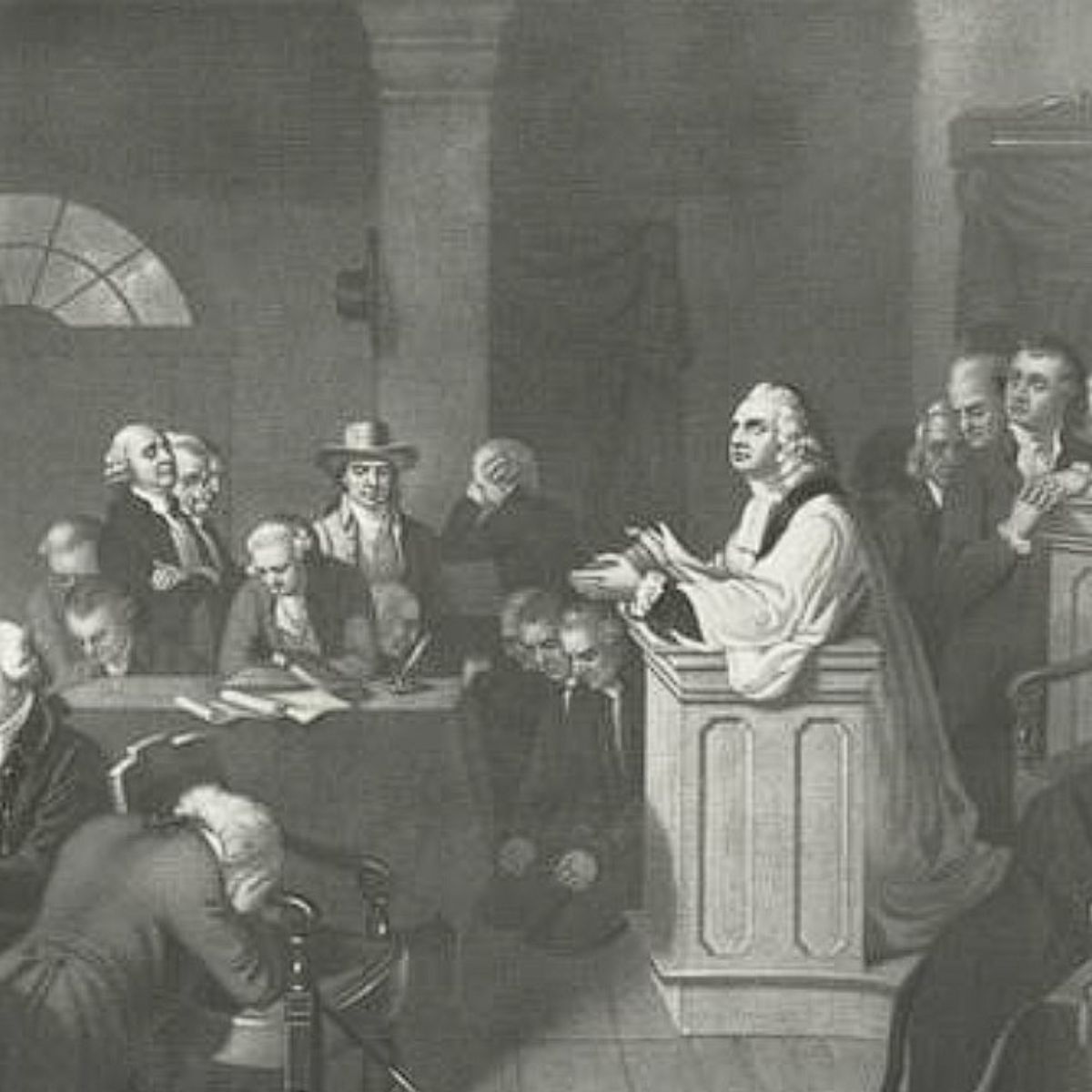The First Continental Congress took place on September 5, 1774, when delegates from 12 of the 13 original colonies met at Carpenters Hall in Philadelphia, Pennsylvania.

They met in response to the Intolerable Acts, which the British had levied against the colonies in response to their rebellion in the Boston Tea Party.
Although they aimed to punish Boston, the acts punished all the colonists and began to raise questions as to why the British were allowed to raise taxes on the colonies when the colonies did not have representation in Parliament.
This had not been the first time that delegates from across the thirteen colonies had met. They had met during the Townshend Acts and Stamp Act.
It was during the Stamp Act Congress that Patrick Henry delivered his passionate speech to Congress, which ended with the words, "Give me Liberty or Give me death."
The Stamp Act had given rise to many of the future founders of the new nation and laid the foundation for the First Continental Congress to meet.
The main voices during this Congress were that of Joseph Galloway and Patrick Henry. Henry called for dissolution with Britain, while Galloway proposed a plan that would unite the colonies and form a legislative body.
Henry's idea would be rejected, and Galloway's plan would get the support of Congress. Galloway would later join the Loyalists during the American Revolutionary War.
The Stamp Act would eventually be repealed by Britain, as was the Townshend Acts, and the First Continental Congress looked to resolve these issues in a similar fashion.
Although there was some who began to ask questions about independence from Britain, it was not spoken of, and everyone wished to resolve these issues with Britain peacefully.
The delegates wrote a petition to King George III and agreed to meet again to discuss the response of that petition. King George ultimately rejected their petition, and the Second Continental Congress was called.
List of Delegates:
Notice Georgia was not present during the First Continental Congress. They were lobbying Britain for military support due to Indian attacks on the frontier.
| John Adams | Massachusetts Bay |
| Samuel Adams | Massachusetts Bay |
| Thomas Cushing | Massachusetts Bay |
| Robert Treat Paine | Massachusetts Bay |
| Stephen Hopkins | Rhode Island |
| Samuel Ward | Rhode Island |
| Silas Deane | Connecticut |
| Eliphalet Dyer | Connecticut |
| Roger Sherman | Connecticut |
| John Sullivan | New Hampshire |
| Nathaniel Folson | New Hampshire |
| James Duane | New York |
| John Jay | New York |
| William Floyd | New York |
| Philip Livingston | New York |
| Isaac Low | New York |
| Simon Boerum | New York |
| John Haring | New York |
| Henry Wisner | New York |
| John Alsop | New York |
| Stephen Crane | New Jersey |
| James Kinsey | New Jersey |
| William Livingston | New Jersey |
| Richard Smith | New Jersey |
| John De Hart | New Jersey |
| Edward Biddle | Pennsylvania |
| John Dickinson | Pennsylvania |
| Joseph Galloway | Pennsylvania |
| Charles Humphreys | Pennsylvania |
| Thomas Mifflin | Pennsylvania |
| John Morton | Pennsylvania |
| Samuel Rhoads | Pennsylvania |
| George Ross | Pennsylvania |
| Thomas McKean | Delaware |
| George Read | Delaware |
| Caesar Rodney | Delaware |
| Robert Goldsborough | Maryland |
| Samuel Chase | Maryland |
| William Paca | Maryland |
| Matthew Tilghman | Maryland |
| Richard Bland | Virginia |
| Benjamin Harrison | Virginia |
| Patrick Henry | Virginia |
| Richard Henry Lee | Virginia |
| Edmund Pendleton | Virginia |
| George Washington | Virginia |
| Richard Caswell | North Carolina |
| Joseph Hewes | North Carolina |
| William Hooper | North Carolina |
| Christpher Gadsen | South Carolina |
| Thomas Lynch Jr | South Carolina |
| Henry Middleton | South Carolina |
| Edward Rutledge | South Carolina |
| John Rutledge | South Carolina |
| Thomas Johnson | Maryland |
| Peyton Randolph | Virginia |
